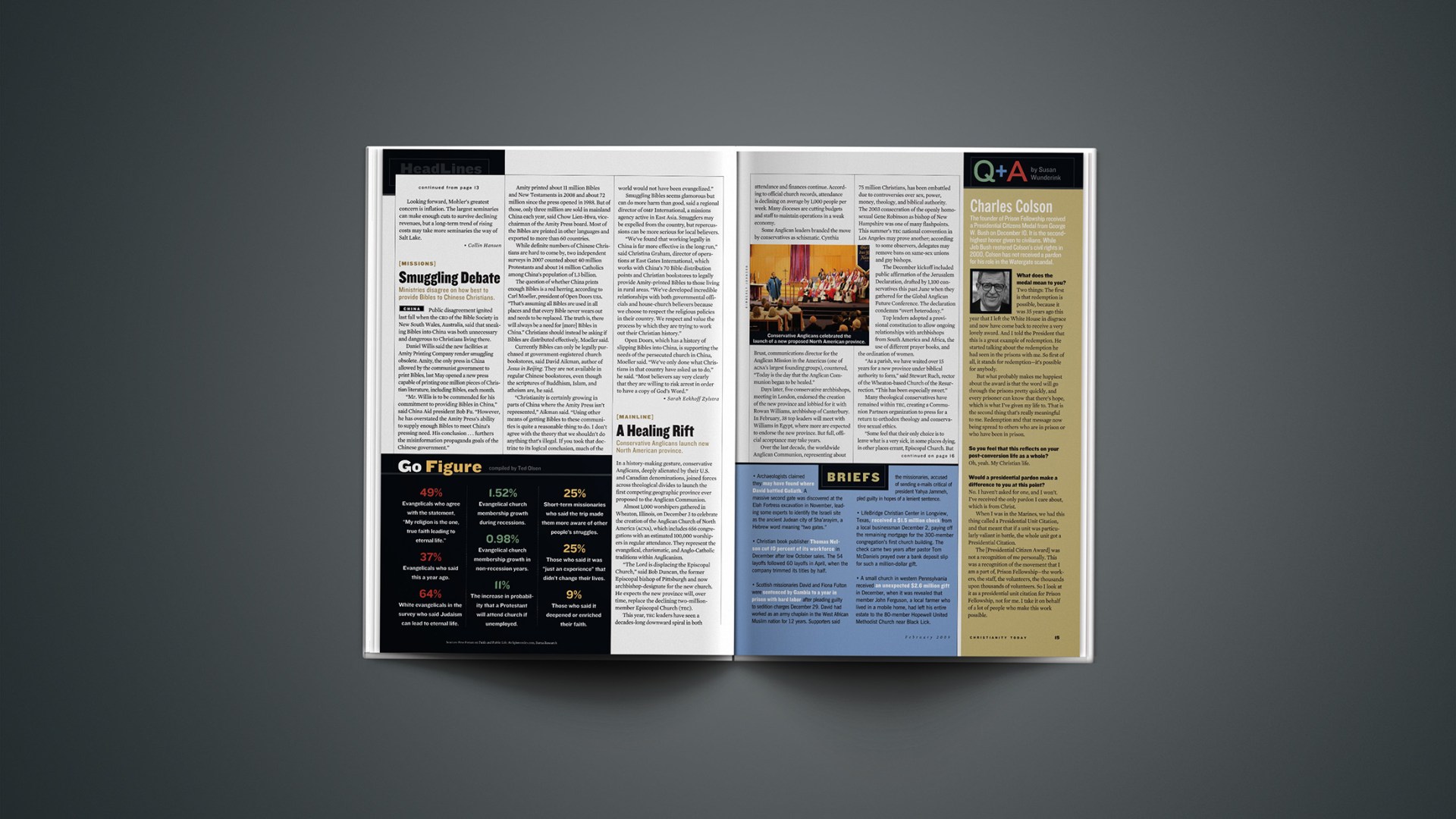Public disagreement ignited last fall when the CEO of the Bible Society in New South Wales, Australia, said that sneaking Bibles into China was both unnecessary and dangerous to Christians living there.
Daniel Willis said the new facilities at Amity Printing Company render smuggling obsolete. Amity, the only press in China allowed by the communist government to print Bibles, last May opened a new press capable of printing one million pieces of Christian literature, including Bibles, each month.
“Mr. Willis is to be commended for his commitment to providing Bibles in China,” said China Aid president Bob Fu. “However, he has overstated the Amity Press’s ability to supply enough Bibles to meet China’s pressing need. His conclusion … furthers the misinformation propaganda goals of the Chinese government.”
Amity printed about 11 million Bibles and New Testaments in 2008 and about 72 million since the press opened in 1988. But of those, only three million are sold in mainland China each year, said Chow Lien-Hwa, vicechairman of the Amity Press board. Most of the Bibles are printed in other languages and exported to more than 60 countries.
While definite numbers of Chinese Christians are hard to come by, two independent surveys in 2007 counted about 40 million Protestants and about 14 million Catholics among China’s population of 1.3 billion.
The question of whether China prints enough Bibles is a red herring, according to Carl Moeller, president of Open Doors USA. “That’s assuming all Bibles are used in all places and that every Bible never wears out and needs to be replaced. The truth is, there will always be a need for [more] Bibles in China.” Christians should instead be asking if Bibles are distributed effectively, Moeller said.
Currently Bibles can only be legally purchased at government-registered church bookstores, said David Aikman, author of Jesus in Bejing. They are not available in regular Chinese bookstores, even though the scriptures of Buddhism, Islam, and atheism are, he said.
“Christianity is certainly growing in parts of China where the Amity Press isn’t represented,” Aikman said. “Using other means of getting Bibles to these communities is quite a reasonable thing to do. I don’t agree with the theory that we shouldn’t do anything that’s illegal. If you took that doctrine to its logical conclusion, much of the world would not have been evangelized.”
Smuggling Bibles seems glamorous but can do more harm than good, said a regional director of OMF International, a missions agency active in East Asia. Smugglers may be expelled from the country, but repercussions can be more serious for local believers.
“We’ve found that working legally in China is far more effective in the long run,” said Christina Graham, director of operations at East Gates International, which works with China’s 70 Bible distribution points and Christian bookstores to legally provide Amity-printed Bibles to those living in rural areas. “We’ve developed incredible relationships with both governmental officials and house-church believers because we choose to respect the religious policies in their country. We respect and value the process by which they are trying to work out their Christian history.”
Open Doors, which has a history of slipping Bibles into China, is supporting the needs of the persecuted church in China, Moeller said. “We’ve only done what Christians in that country have asked us to do,” he said. “Most believers say very clearly that they are willing to risk arrest in order to have a copy of God’s Word.”
Copyright © 2009 Christianity Today. Click for reprint information.
Related Elsewhere:
Christianity Today has more articles on China and missions & ministry.










